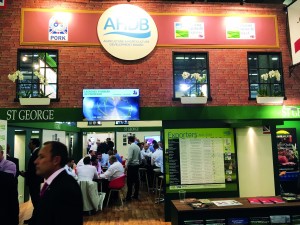It is a good time to be a British pork exporter and, for that matter, a British pig farmer.
That was the clear message from the floor of SIAL, the world’s biggest food trade fair, based on a well-documented combination of circumstances that has helped drive UK pig exports and profitability across the supply chain, following a torrid 18 months for the sector.
The Chinese effect, clearly in evidence in Paris, cannot be under-estimated.
A shortage of pigs in China, leading to strong demand for EU exports, is not only helping demand outstrip supply at home but is also balancing the carcass.
Heavy demand for relatively unwanted parts of the pig in European markets is making it more worthwhile to produce premium cuts for the home market.
Add in the post-Brexit vote exchange rate shift and apparent positive sentiment globally towards British pork and the welfare, traceability and safety standards associated with it, and no wonder British exporters were smiling. But while the short-term outlook is good, a shift in the global supply and demand balance and the uncertainty surrounding Brexit qualified long-term expectations.
“We need more meat. There is a demand for it and we could produce more and sustain the price. We need to increase the supply of British”
For some, however, the immediate equation was simple.
“We need more meat,” AHDB’s head of meat exports Jean-Pierre Garnier told journalists, highlighting a shortage of British lamb, beef and pork.
“There is a demand for it and we could produce more and sustain the price. We need to increase the supply of British.”
“At an exchange rate of £1 = €1.44 it was very, very difficult to export meat, while at £1 = €1.10 it’s a completely different story,” Mr Garnier said, adding that the exchange rate was equally helpful on the domestic market.
“At this stage, therefore, there are no producer negatives in sight, especially with many consumers around the world appreciating the excellent quality of British pork and the high welfare standards of our production industry.”
Remain flexible
He predicted the currency level was likely to persist for some time and saw no immediate end in sight for the good times but, nonetheless, still urged pig producers considering expansion to ‘remain flexible’ as the market can always turn. While for now, all is rosy and it is ‘business as usual’, the Brexit vote casts a long-term shadow, he cautioned, warning that new trade deals could take many years to negotiate and may not provide the opportunities the industry is being led to believe it will.
It is not just tariff levels and the financial arrangements of new trade deals that will have to be considered in negotiations, but all the complex standards such as phytosanitary measures to protect health, which will pile on the negotiating time, he said.
It could take 10 years or more to get back to anything like normality, with much trade likely to subject to WTO tariff rules until then. Even under new deals, the UK will not be able to negotiate the same level of welfare standards on imported meat because we have ‘the highest level of animal welfare standards in the world’, he added
“The big thing going forward will be making sure the consumer is aware of the difference,” Mr Garnier said.





